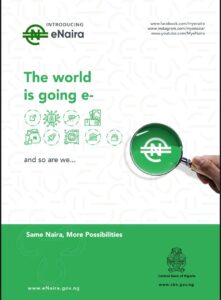The Central Bank of Nigeria (CBN) in about six years expended over N10 trillion in interventions to different sectors of the economy without significant results, the CBN Governor, Mr. Yemi Cardoso has said.
Recall the immediate past CBN Governor, Mr. Godwin Emefiele championed a lot of interventions to support local production in the agriculture value chain, the manufacturing sector, the healthcare sector, the aviation sector, SMEs sector, and other sectors.
He said the huge financial injection into the economy by the CBN rather exacerbated inflation and caused price distortions.
He also said some of the funds didn’t get to the intended beneficiaries adding that the CBN is discontinuing the interventions.
Mr. Cardoso disclosed this on Tuesday during the February Monetary Policy Committee Meeting (MPC).
“On interventions, and the fact the CBN has said that it is moving away from that. Yes, it is. The reason is not far-fetched. Everyone is concerned about inflation, and price instability. Since everyone is being heavily affected why won’t we put everything we have to ensure we fight the monster? The interventions have two dysfunctions as far as I am concerned. Firstly, it takes away a lot of your time on something that you don’t have the expertise to do. Secondly, if not carefully handled, creates a lot of distortions in your economy through the inflow of money supply” he stated.

“The interventions that took place in the recent past were estimated more than N10 trillion. I’m not talking of ways and means, I’m talking of interventions. What was the budget of the federal government of Nigeria? What was the budget of the largest state in Nigeria? Do the math and it will tell you the extent of damage. Too much of what may appear as a good thing can do to an economy” the CBN Governor stated.
“It is a major issue. The interventions that are out there need to be properly monitored to ensure they come back and we are already doing that with various degrees of success. At some point, we will make the figures public” Cardoso assured.
The Apex Governor emphasized that “the time when we have failed interventions in Nigeria is over. We have no room to take up interventions that will fail and do not get down to the people it was intended to get down to.”
Also, the CBN Governor said over $26 billion has passed through cryptos in the last four years in Nigeria.
“In the case of Binance, in the last year, 26 billion dollars have passed through Binance Nigeria from sources and users who we cannot adequately identify,” he told reporters in his first MPC meeting since assuming office as the CBN governor.
Responding to a question on the hardships being faced by Nigerians as a result of the rising commodity process, Mr. Cardoso said they are trying to make a bad situation better.
“The CBN Governor I and my team are not responsible for the woes that we have today. We are part of the solution. We are determined to ensure that we work hard to get out of the mess that Nigerians are. We assumed responsibility in times of crises of confidence. All we can do is do the difficult things to make a bad situation better. I do believe that the efforts that we are making are beginning to bring back confidence. Without confidence, you can’t get that far” he explained.

“We are putting point our policies and trying as much as possible not to go against what we said we would do. We are trying to be as responsible as possible. We are trying to put the country above individuals” he stated.
MPC Decision
The Committee decided to further tighten monetary policy as follows: Raise the MPR by 400 basis points to 22.75 from 18.75 percent, adjust the asymmetric corridor around the MPR to +100/-700 from +100/-300 basis points. 3. Raise the Cash Reserve Ratio from 32.5 percent to 45.0 percent and retain the Liquidity Ratio at 30 percent.
The CBN Governor said the Committee’s decisions were centered on the current inflationary and exchange rate pressures, projected inflation, and rising inflation expectations.
He said members were concerned about the persistent rise in the level of inflation and emphasized the Committee’s commitment to reverse the trend as the balance of risk leaned towards rising inflation.
The Committee, however, acknowledged the trade-off between the pursuit of output growth and taming inflation but was convinced that an enduring output expansion is possible only in an environment of low and stable inflation.










